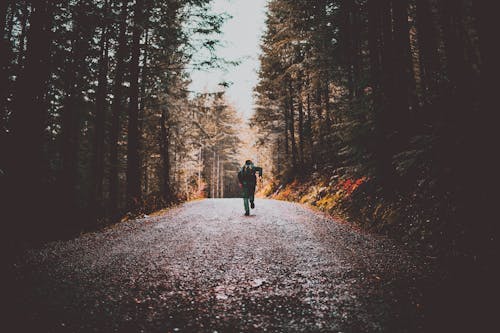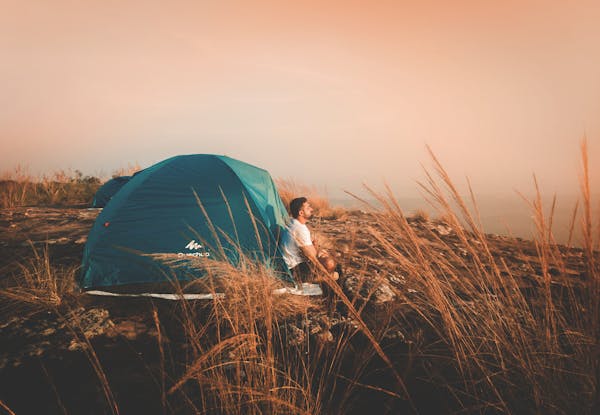Traveling alone offers a unique opportunity unlike any other. Without companions, your journey becomes deeply personal—a chance to connect not only with new places but with yourself. Solo travel strips away distractions and external influences, leaving space for reflection, growth, and self-awareness.
Many who set out alone find that the experience challenges their assumptions, builds confidence, and reveals inner strengths. It can be both thrilling and humbling, pushing you beyond comfort zones while offering freedom and clarity. Here’s a closer look at how traveling solo can become a transformative act of self-discovery.

The Freedom of Being Alone
Traveling solo means making all decisions on your own terms. You set the pace, choose the itinerary, and listen closely to your own interests and needs. There’s no need to compromise or adjust to others’ preferences.
This freedom encourages mindfulness—you become more present, noticing details you might otherwise miss. Without conversation filling the silence, your thoughts have room to wander and settle. This space can lead to moments of insight and clarity.
The ability to rely solely on yourself also fosters independence. Navigating unfamiliar environments, solving unexpected problems, and managing logistics cultivate resourcefulness and resilience.
Facing Fears and Building Confidence
Stepping out alone can be intimidating at first. The unknown carries risks, and without a familiar companion, vulnerability increases. Yet, overcoming these fears is often the greatest reward of solo travel.
Each successful interaction, from asking for directions to making new friends, builds confidence. Handling challenges, whether delayed flights or language barriers, proves your capability and adaptability.
By repeatedly pushing through discomfort, you expand your comfort zone and gain trust in yourself. This growing confidence often extends far beyond the trip, affecting how you approach life back home.

Deepening Self-Awareness
Solo travel naturally invites introspection. Without the usual social context, you confront your thoughts and feelings more directly. What excites you? What drains your energy? What makes you feel truly alive?
Time alone offers the chance to reflect on your values, priorities, and dreams. Away from routine and roles, you might realize parts of yourself you’d overlooked or neglected.
Writing in a journal, meditating in quiet moments, or simply observing your surroundings can all deepen this self-connection. The experience often leads to greater self-acceptance and clarity about what matters most.
Connecting with Others on Your Terms
Being alone doesn’t mean being lonely. Solo travelers often find themselves more open to meeting new people. Without the buffer of familiar companions, interactions can feel more genuine and spontaneous.
Whether chatting with locals at a market or bonding with fellow travelers at a hostel, these encounters enrich the journey. They offer new perspectives and remind you that connection is possible anywhere.
Importantly, solo travel lets you choose the depth and frequency of social contact. You decide when to engage and when to retreat, creating a balance that suits your needs.
Experiencing Places More Fully
Traveling alone can heighten your awareness of your surroundings. With no distractions or group dynamics, you tend to absorb details more fully—the smells, sounds, and textures of a place.
This attentiveness can lead to a deeper appreciation of culture, nature, and everyday life in your destination. You might linger longer at a street corner, savor a meal without hurry, or notice a subtle gesture in a conversation.
The solo traveler’s pace is often slower, more deliberate, allowing for richer experiences that stay with you long after the trip ends.
Practical Tips for Solo Travelers
Embarking on a solo journey requires some preparation to ensure safety and enjoyment:
- Research your destination thoroughly to understand local customs and risks.
- Choose accommodations that feel secure and comfortable, such as well-reviewed guesthouses or hostels.
- Stay connected with loved ones by sharing your itinerary and checking in regularly.
- Pack light but smart, bringing essentials that support independence and comfort.
- Trust your intuition—if something feels off, don’t hesitate to change plans or seek help.
- Keep an open mind and embrace flexibility; unexpected moments often become the most memorable.

The Lasting Impact of Solo Travel
Many who travel alone return transformed. The lessons learned on the road ripple into everyday life—stronger self-trust, greater openness, and a clearer sense of purpose.
Solo travel teaches that solitude isn’t loneliness but an opportunity for renewal. It reminds you that you carry within yourself the tools to navigate the world and your own story.
Through this journey, you find not only new places but new parts of yourself, making every step a step toward greater freedom and understanding.
Final Thought
Solo travel is more than just a physical journey; it’s an inward exploration that reveals your resilience, curiosity, and spirit. In the quiet moments of being alone on unfamiliar streets, you meet yourself anew, learning to move through the world with confidence and grace. It’s a powerful reminder that sometimes, the best company you can keep is your own.





